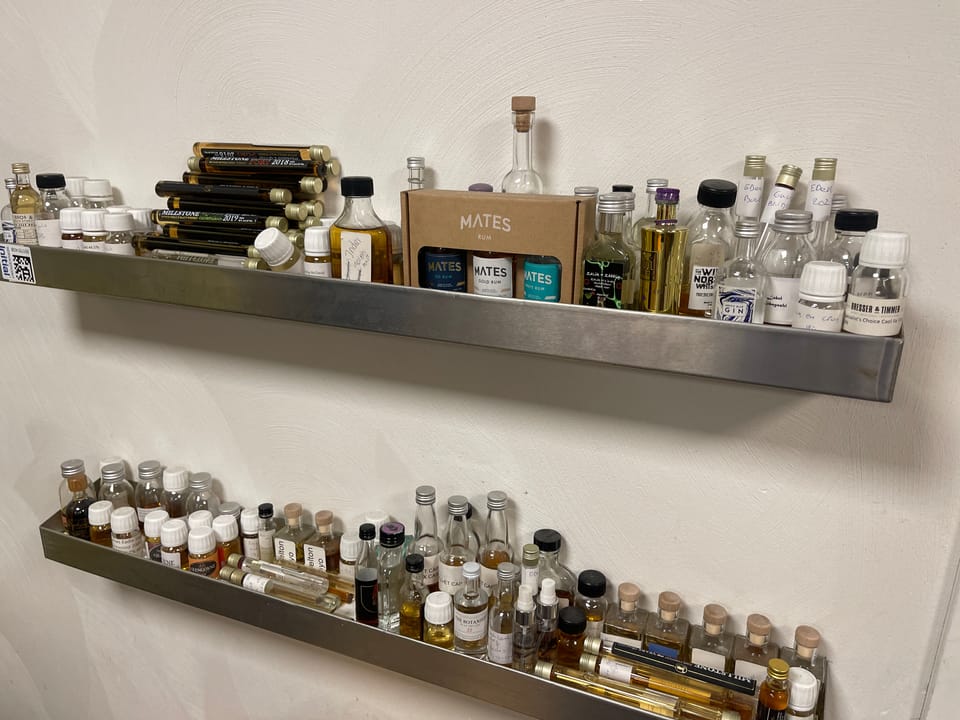Understanding the Concept of Shop Daughters | Winkeldochter?

"Winkeldochter" = Shop Daughters
The term "winkeldochter" is a Dutch business term referring to an unsellable item that remains in a store for a long time. Figuratively, it is sometimes used to describe a girl who is not able to get married, highlighting the idea of something or someone being passed over or left behind. Discussing this term today is not intended to discriminate against women; it is simply a Dutch expression related to unsellable goods.
The reason for addressing this topic is that most stores aim to avoid "shop daughters" as much as possible. Excess inventory increases costs, which is a crucial aspect of business finance. To avoid "shop daughters," I aim to explore their situations, causes, and possible solutions today.
Types of Shop Daughters
Considered Shop Daughters
The first line of defense against "shop daughters" is the shop owner. Regardless of whether a product has a market, if the decision maker of the shop doesn’t like it, it will never become a shop daughter and is dismissed from the start. These products are not tested in the market; they are simply rejected by the owner. Consequently, they won’t occupy shelf space or be sold, regardless of their quality.
Interestingly, some products not favored by certain owners end up selling quite well, raising the question: how do people like those unusual items? Personal preferences are subjective and influenced by factors such as cultural background, personal experiences, psychological traits, social influences, and the novelty effect. The reality is that no product can satisfy everyone’s preferences simultaneously but can cater to a portion of the population. When the firewall against shop daughters is strong, these considered shop daughters include both real shop daughters and potential star products.
Conclusion: The preference of a shop owner doesn't affect the potential of a product to become a real shop daughter, but it can kill the future of a new product.
Read more about recognition bias:

Real Shop Daughters
If there is a real shop daughter, it is primarily because the owner of a shop likes the new product, yet it still ends up sitting on the shelf. This is problematic, and suggesting that a shop owner blame themselves is neither practical nor respectful. So, how can we avoid shop daughters without keeping new products out of the shop? It's important to remember that no product is universally loved by every client.
Conclusion: Even real shop daughters might get past the shop’s initial judgment due to the owner's personal preference bias.
How to Get Rid of Shop Daughters
What if a product is selected and then sits on the shelf in the shop? Here are some strategies to address this issue:
- Promote with Passion and Understanding(What is Baijiu?): Communicate openly with clients about the new product and share your enthusiasm. This requires strong interpersonal skills and a high level of aesthetic capability.
- Build Up Clients' Aesthetic Capability(How to Taste Baijiu?): Use shop daughters in tasting events. This natural consumption can help find matching clients and eliminate shop daughters.
- Find Alternative Pleasant Uses: Collaborate with local bars to create cocktails, making unique flavors more acceptable to new customers.
- Offer Special Rates: Sell shop daughters at a discounted rate to free up shelf space and bring in more cash flow, allowing price-sensitive customers to try something new.
- Start with Low Risk: Avoid large initial purchases. A small test batch can mitigate risk.
Diffusion of Innovations Theory
The "Diffusion of Innovations Theory," proposed by Everett Rogers, categorizes consumers into five groups based on how quickly they adopt new products or technologies:
- Innovators: About 2.5% of the population; they are risk-takers and the first to try new products.
- Early Adopters: About 13.5%; these opinion leaders influence others' decisions by trying new things early.
- Early Majority: About 34%; they adopt new products after some observation and evaluation.
- Late Majority: About 34%; they are cautious and adopt new products only after the majority have done so.
- Laggards: About 16%; they are skeptical and adopt new products once they become mainstream.
This theory helps us understand how new products spread through the market and aids businesses in developing marketing strategies for different consumer groups.
My Attitude Towards Rejection by Shop Owners
It is normal to face rejection from 3-4 out of 5 liquor stores, especially in the early stages of introducing Baijiu to Europe.
- I need to improve my sales skills and be more patient.
- I should work harder on educating the market by finding supporters to help introduce Baijiu to Europe.
- These supporters with open mindsets could become partners in bringing other interesting drinks to China.
By understanding and applying these insights, we can better navigate the challenges of introducing new products to the market and effectively manage "shop daughters."
Special Thanks to People I met, no matter accepting my product or refusing my product.
To those who have decided to work with me, I extend my heartfelt gratitude. Your support fuels my mission of discovering and sharing diverse flavors, enriching both my journey and the experiences of your clients. Your belief in me and my products inspires me to continue striving for excellence as a sommelier and distiller.
To those who have chosen not to work with me, I also express my sincere thanks. Your feedback is invaluable, prompting me to reflect on my approach and refine my methods. This process of continuous improvement ensures that I can better present and promote the unique and exquisite spirit that is Baijiu.
As a modest sales person and a world citizen, I am committed to bridging cultures through flavors and creating memorable experiences. Your interactions, whether supportive or critical, contribute to my growth and dedication to this beautiful craft. Thank you for being part of this journey.

